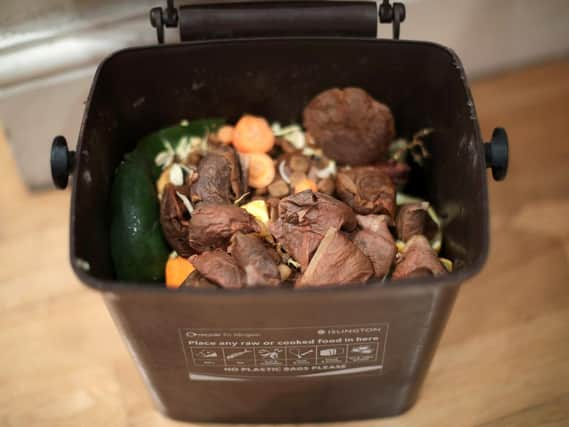New bin for Preston home owners to deal with


New Government plans mean Preston City Council will need to roll out food waste collections to more than 50,000 homes to stop leftovers going to landfill.
The Environment Bill outlines plans for food waste to be collected separately from all households by 2023, with a campaign group calling uneaten food in the country an "environmental nightmare of epic proportions".
Advertisement
Hide AdAdvertisement
Hide AdAn analysis of data from waste reduction charity Waste and Resources Action Programme, who support the proposals, shows the estimated 58,000 households in Preston do not get their kitchen scraps picked up by the council.
This means Preston City Council, along with around half of all English local authorities, will have to introduce a new food waste collection within three years.
The ruling comes five years after the authority voted to ditch domestic food waste collections to help balance the books.
Typically, food waste is collected from houses using a caddy in the kitchen and putting out the scraps in another container outside for collection, or it can be combined with garden waste.
Advertisement
Hide AdAdvertisement
Hide AdFlats pose more of a challenge, with some given communal bins to empty their caddies in to.
Figures provided by 326 English local authorities to Wrap for 2018-2019 show Preston City Council is one of 160 councils not to provide any food waste collections for their residents.
According to the data, 35 per cent of councils do provide this service for some or all of their households, 12 per cent have a system where people can dispose of leftovers alongside garden waste, and four per cent offer a mixture of the two systems.
The statistics from Wrap go up to 2018-19, but some councils may have changed their services since then.
Advertisement
Hide AdAdvertisement
Hide AdThe figures reveal the scale of the challenge facing town halls in meeting the Government's requirement for all homes to have food waste collections.
In addition, the information does not reflect how many families who have access to food waste recycling actually use it, and how many are still throwing leftovers, scraps and gone off food into the bin.
A spokeswoman for the Department for Environment, Food and Rural Affairs said they will be working closely with local authorities to end confusion over household recycling.
She added: "Nobody wants to see good, nutritious food going to waste and harming our environment, which is why we've committed to eliminating food waste from landfill by 2030.”
Advertisement
Hide AdAdvertisement
Hide AdThe Government says its preference is for separate collections rather than with garden waste.
The Local Government Association said it supported ambitions to reduce food waste, but spokesman David Renard said decisions over separate collections should be a local decision.
He added: "Councils would need to be fully funded to meet new costs from introducing weekly food waste collections, regardless of whether or not they have been providing a food waste service voluntarily."
Carina Millstone, executive director of food waste campaigners Feedback, said: “With over 10 million tonnes of food going to waste per year in the UK, food waste is an environmental nightmare of epic proportions. The good news is that halving our food waste is one of the most effective actions any of us can take to help address the climate emergency.
Advertisement
Hide AdAdvertisement
Hide Ad"Councils have an important role to play - sending food scraps to be composted or to be made into energy is far better than sending it to landfill or to be incinerated, saving around one third of the greenhouse gas emissions caused by binning food.
"However, not wasting edible food is by far the best option. It’s imperative that the Government provides support not only for kerbside food waste collection, but also for initiatives to help us all waste less food in the first place.”
